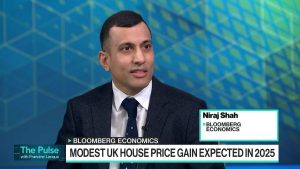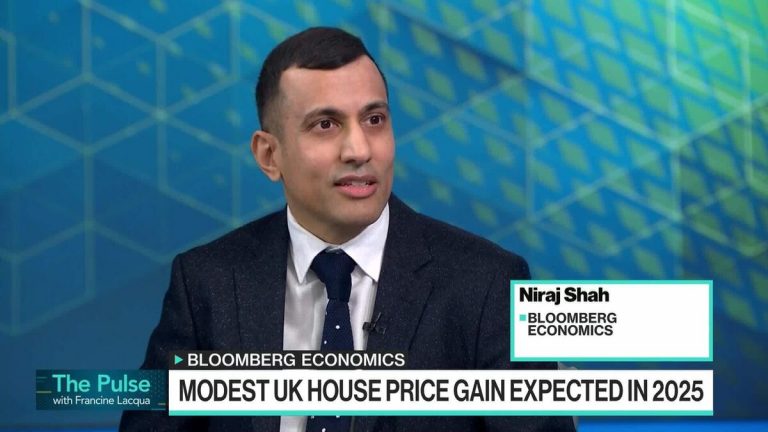A clutch of cryptocurrency-focused hedge funds has made a windfall in recent weeks as Donald Trump’s election win fuelled a powerful rally that propelled bitcoin above the $100,000 milestone.
Funds employing crypto strategies posted gains of 46 per cent in November, bringing their year-to-date returns to 76 per cent, according to data provider Hedge Fund Research. The returns have outpaced the broader industry, with the average hedge fund gaining 10 per cent in the first 11 months of this year, HFR said.
Brevan Howard Asset Management and Galaxy Digital, the cryptocurrency investment manager founded by billionaire Mike Novogratz, have been among the biggest winners from the recent surge in digital assets.
Crypto funds’ outsized gains come after Trump’s election victory in November added a fresh jolt of enthusiasm to this year’s rally in bitcoin, the biggest cryptocurrency, which has also sent smaller tokens soaring.
Bitcoin has risen 130 per cent this year to around $100,000, helping push the market value of major crypto tokens up by $1.8tn to $3.5tn, according to the FT Wiltshire Digital Assets Dashboard. The crypto market pulled back from recent highs this week after the Federal Reserve said it would cut rates less than expected next year, hitting risky assets.
Investors are betting that Trump’s crypto-friendly nominees for top government jobs will contrast with Joe Biden’s administration, which has generally taken a more sceptical approach.
“Trump’s election is great news for digital assets because it’s going to bring more clarity on the regulatory side,” said Damien Miller, managing partner at macro hedge fund MP Alpha Capital. “There will be an environment that is more friendly and collaborative towards bitcoin and blockchain.”
Brevan Howard’s main crypto fund gained 33 per cent in November, and is now up 51 per cent in the first 11 months of the year, according to investors. Brevan Howard, which has $35bn in assets, is one of the biggest hedge fund managers to have a devoted crypto business, which it launched in 2021.
Galaxy’s hedge fund strategy gained 43 per cent in November, and is up 90 per cent in 2024, according to investors. The New York-based group has more than doubled its assets under management in the past two years, to $4.8bn, in part by buying up assets from bankrupt crypto companies.
Galaxy and Brevan Howard declined to comment on their performance.
The recent surge in digital assets marks a staggering reversal in fortunes for a sector that was mired in a deep crisis beginning in 2022.
Bitcoin hit a low of around $15,500 when Sam Bankman-Fried’s FTX exchange collapsed in November 2022. Galaxy, which has sought to position itself as a full-service crypto financial services firm, posted a $1bn net loss that year.
The cryptocurrency industry received a fillip in January 2024 when the US Securities and Exchange Commission approved 11 exchange traded bitcoin funds, opening the door to cryptocurrencies for new institutional and retail investors. BlackRock, the world’s biggest asset manager, said last week it sees a “case for including bitcoin in multi-asset portfolios”.
NextGen Digital Venture, a $120mn crypto equity fund, is up 330 per cent from its launch in March 2023 to the end of November, according to investors. It has benefited from positions in some bitcoin ETFs, as well as cryptocurrency exchange platform Coinbase and software provider turned bitcoin investor MicroStrategy.
“After the bitcoin ETF was approved we felt that crypto stocks would become another opportunity for institutional investors because they already had access to bitcoin,” said Jason Huang, founding partner of NextGen Digital Venture.
Coinbase is up almost 60 per cent since the end of 2023, while MicroStrategy is up more than 400 per cent.
Some macro hedge funds — which trade macroeconomic trends in currencies, commodities, bonds and stocks — have also boosted exposure to digital assets in anticipation of a favourable market environment. MP Alpha Capital’s $20mn global macro hedge fund is up over 30 per cent this year, according to investors.
“We’ve had a good run on digital assets: bitcoin, ethereum and bitcoin miners,” said Miller, referring to firms that complete complex calculations in exchange for tokens. “Over the past 18 months, our whole thesis was around the institutional adoption of digital assets and the macro backdrop of looser monetary policy, a weaker dollar and a liquidity-rich environment.”
Trump has signalled that crypto regulation is among his most pressing priorities, and has named venture capitalist and Elon Musk confidant David Sacks as the White House’s cryptocurrency tsar.
A change in leadership at the SEC, the top American securities regulator, has also been welcomed by crypto enthusiasts.
Gary Gensler, the current chair who branded crypto a “wild west” rife with unlawfulness and investor risk, will step down when Trump takes office. He had refused to craft rules catered to digital assets, arguing that many tokens are securities and that existing securities law is enough guidance.
Gensler will be replaced by cryptocurrency advocate Paul Atkins.
Still, several managers warned that the surge in bitcoin should cause investors to pause and take stock. Huang at NextGen Digital Venture said that, while he is long-term bullish on bitcoin and crypto, “no asset rises in a straight line without volatility.”



























+ There are no comments
Add yours